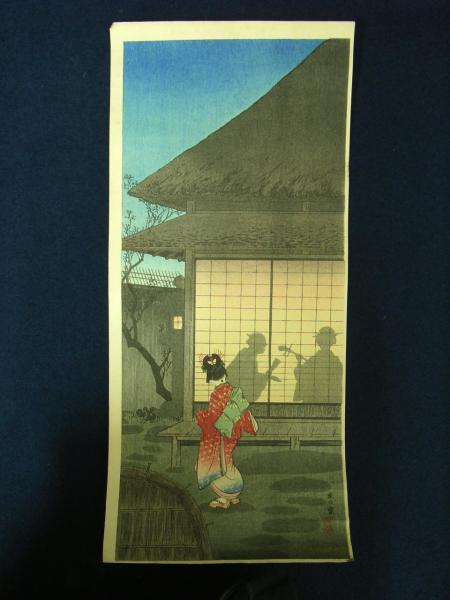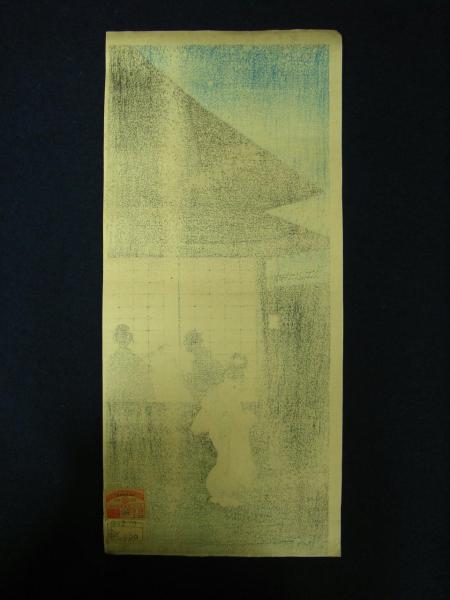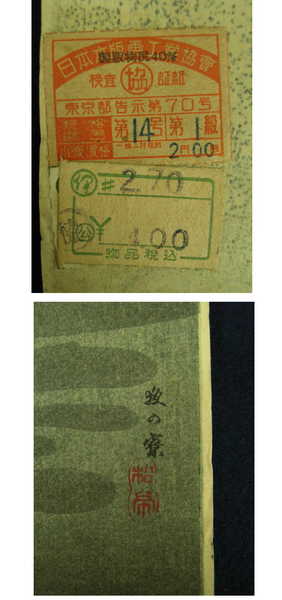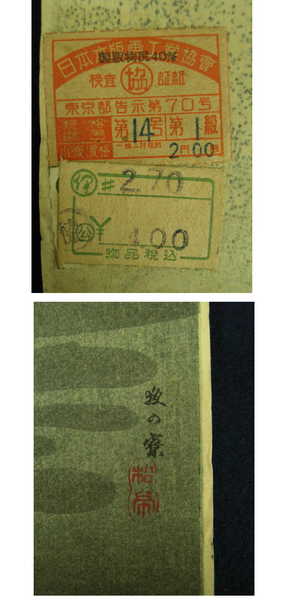| Artist Bio: |
Takahashi Shotei was born in Tokyo with the given name of Takahashi Katsutaro. At a young age he was trained in Nihon-ga , the traditional Japanese painting style by his uncle Matsumoto Fuko, and beginning around 1907 Shotei started designing for the Watanabe Color Print Company. Shotei was among the first designers to be recruited into Watanabe's stable of artists, which would later expand to include Goyo, Shinsui, Hasui, Kasamatsu, Koson and Koitsu among others. Many Watanabe prints were designed for export, primarily to North America, where the demand for all things Japanese was high in the early 20th century.
By 1923 Shotei had produced nearly 500 designs for Watanabe, when Tokyo was hit by the Great Kanto earthquake -- the worst recorded natural catastrophe in the history of Japan. The fires ignited by the earthquake raged for three days, and Watanabe's print shop and all the woodblocks created by Shotei and the other early shin hanga artists, were destroyed.
After the earthquake Shotei created another 250 prints mostly depicting scenic Japanese landscapes in the shin hanga style he had helped to define. He continued to work for Watanabe, but also worked with the publishers Fusui Gabo and Shobido Tanaka, where he had more control over the finished print than was possible with Watanabe.
Shotei used a variety of names, signatures and seals during his lifetime. From 1907 until 1922 he used the name Shotei, and after 1922 Hiroaki and Komei.
|
|





